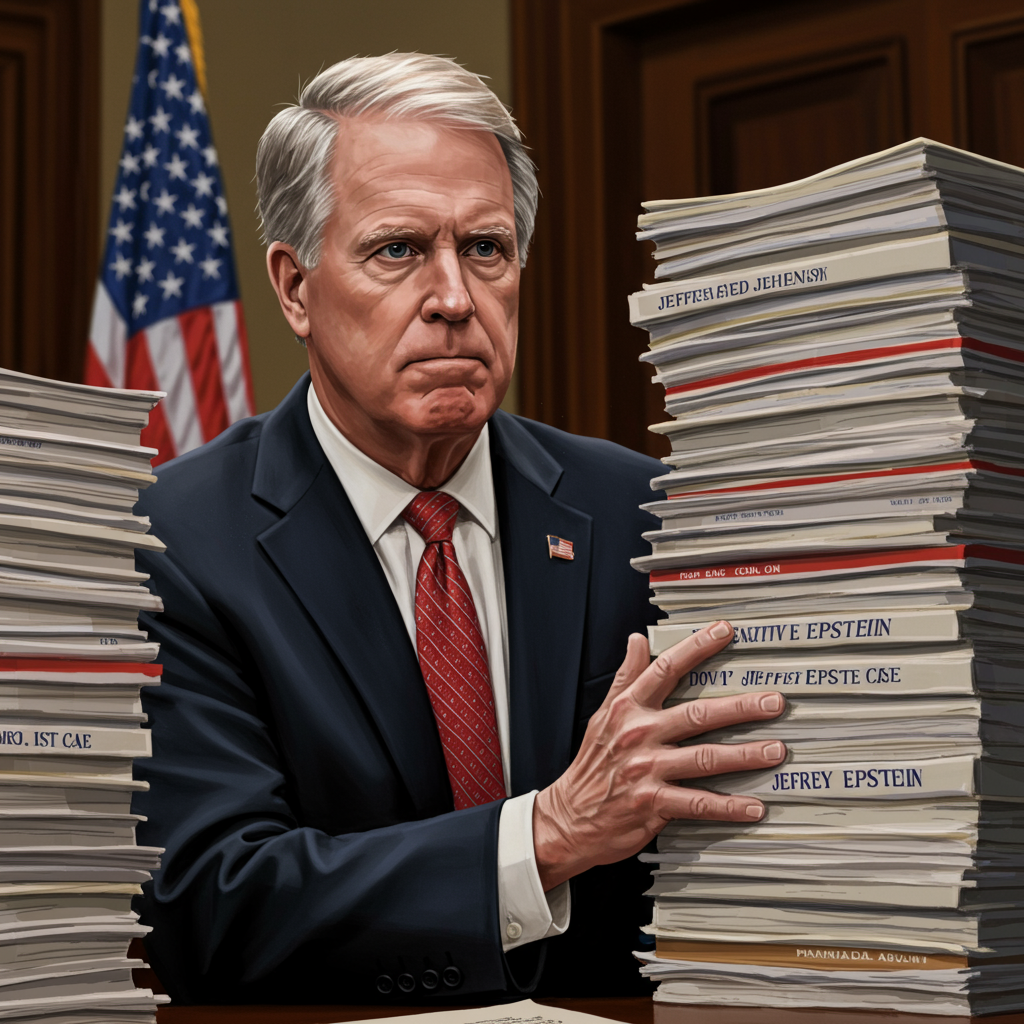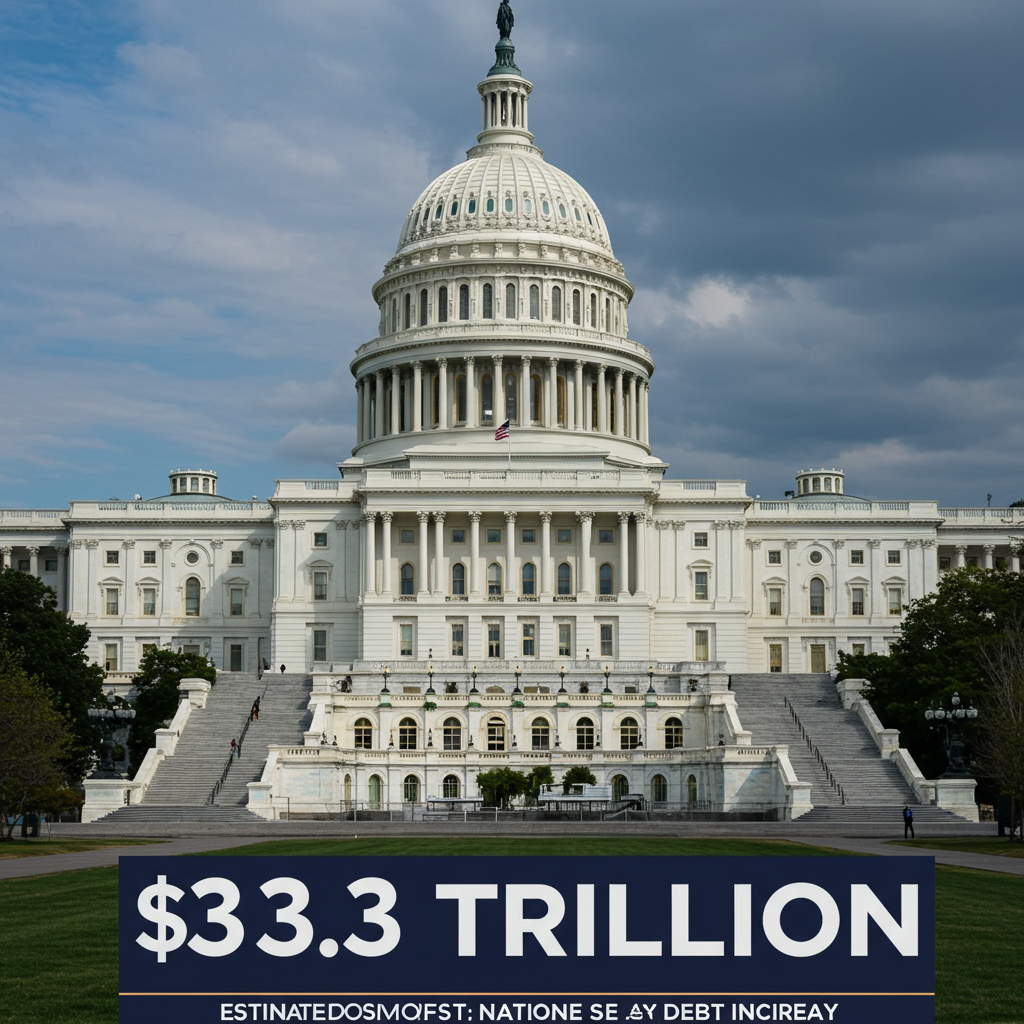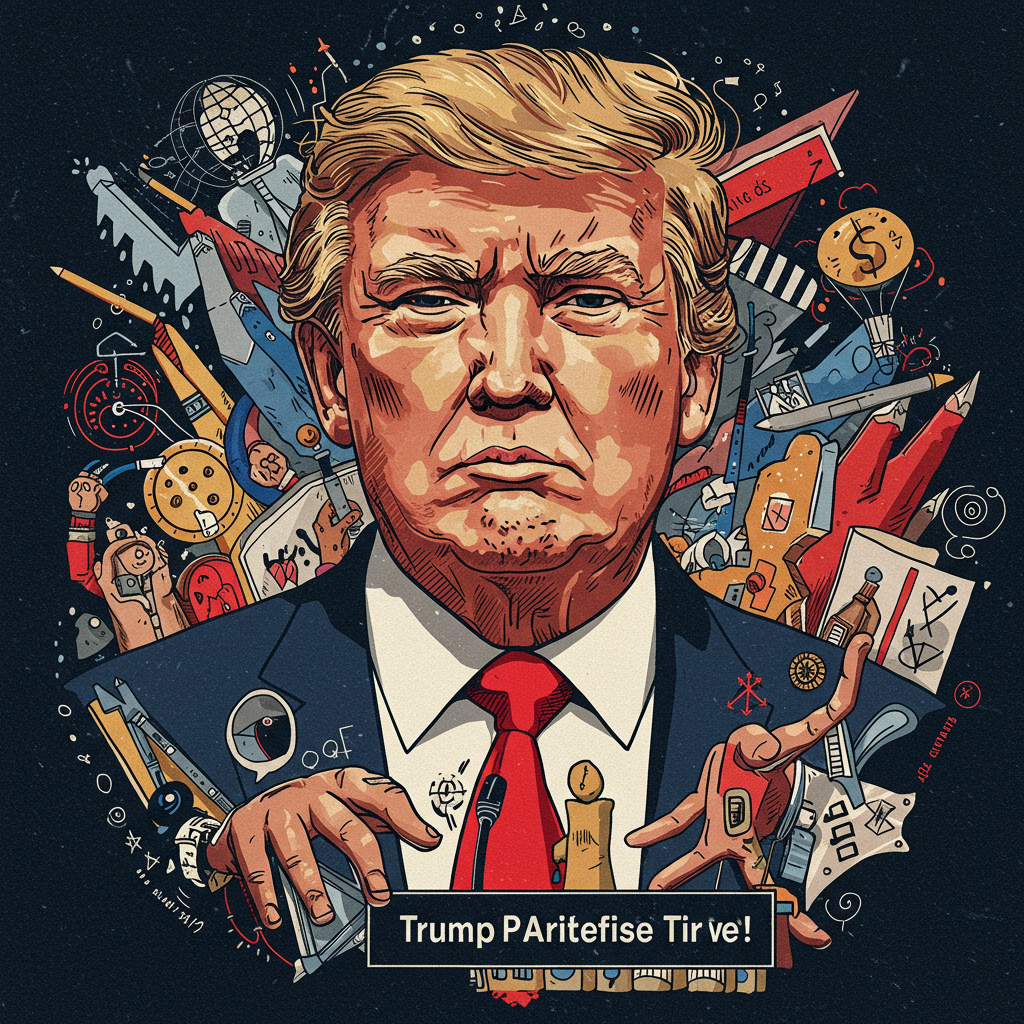A significant congressional standoff is delaying the potential release of more Jeffrey Epstein-related documents. House Speaker Mike Johnson has halted any immediate votes on the controversial matter. This decision pushes action beyond the August recess, sparking intense debate. It puts Johnson at odds with some within his own party. Critics argue this move stifles transparency. The public remains largely unsatisfied with current disclosures.
House Speaker Pumps Brakes on Epstein Document Vote
House Speaker Mike Johnson confirmed he has no plans for a vote on Jeffrey Epstein-related measures this week. This effectively blocks any action until after the upcoming August recess. The recess begins at week’s end. Speaker Johnson addressed reporters at the US Capitol, signaling his stance. This decision comes despite mounting pressure from members of his own Republican caucus. They are pushing for greater transparency.
The Speaker’s position aligns with the White House. Johnson stated his belief that the administration needs “space to do what it is doing.” He suggested further congressional action might be considered later. “We agree with the president,” Johnson affirmed. This unity between the House leadership and the executive branch aims to show a common front on the issue.
GOP Pushback and Calls for Transparency
Despite Johnson’s stance, a vocal segment of Republicans demands action. Many of President Donald Trump’s staunchest congressional allies advocate for transparency. They want a recorded vote on the Epstein saga. This issue resonates strongly with the MAGA base. Some even accuse Democrats of politicizing the matter.
Forcing the administration to release materials against its will would be a rare move. It would mark a notable rebuke of the president by his own party. Yet, this push has gained little traction among the House’s top leadership. The House Rules Committee, controlled by the Speaker’s allies, has played a key role. It has effectively frozen legislative business to avoid votes on these amendments. This tactic has stalled other important bills too.
Legislative Stalemate and Strategic Delays
The House Republican leadership has deliberately paused legislative activity. This prevents votes on amendments demanding more Epstein files. The Speaker-controlled House Rules Committee is central to this paralysis. It is expected to continue until September. Republicans on the committee reportedly chose to halt work rather than vote ‘no.’ They want to avoid accusations of concealing information about Epstein.
Rep. Jim McGovern, the ranking Democrat on the committee, confirmed the suspension of work. Rep. Teresa Leger Fernandez highlighted a troubling pattern. She noted the Rules Committee has already voted six times against forcing the release of these files. These procedural maneuvers raise questions about motivations behind the obstruction. Public sentiment strongly favors more openness. A CNN/SSRS poll found only 3% of Americans are satisfied with current information. Over half expressed dissatisfaction.
The Discharge Petition: A Path Forward?
A bipartisan group of House members is actively seeking to bypass Speaker Johnson. Kentucky Representative Thomas Massie leads this effort. California Democratic Representative Ro Khanna is also a key player. They are spearheading a discharge petition. This procedural tool can force a floor vote on a separate bill. It calls for the release of the files.
For the petition to succeed, 218 House members must sign it. This represents a majority of the chamber. If successful, the measure would reach the House floor. However, a vote wouldn’t happen until after Labor Day. Lawmakers will return from their summer recess by then. The procedural maneuver requires seven legislative days before signatures can be formally collected. Once 218 members sign, party leaders are compelled to bring it for a vote.
Trump’s Evolving Stance and DOJ Involvement
President Trump’s administration has faced consistent calls for transparency. While officials previously hinted at “damning revelations,” Trump now calls the files a “hoax.” He attributes these calls to the “radical left.” His stance has shifted notably. He recently stated he doesn’t want support from those pushing for release.
Trump’s attorney general, Pam Bondi, has requested grand jury testimony be made public. This process requires court approval and is typically slow. The Massie and Khanna measure goes significantly further. It demands the Trump administration release “all unclassified records, documents, communications, and investigative materials” related to Epstein within 30 days. It also requires a “list of all government officials and politically exposed persons named or referenced.” This list is a key demand from Trump’s base.
Bipartisan Pressure and Political Divide
Democratic Leader Hakeem Jeffries fully backs the Massie-Khanna initiative. He believes Democrats will provide all 212 votes needed. This puts immense pressure on House Republicans. With Democratic unity, just 10 Republicans would be enough to meet the 218-signature threshold. Along with Massie, several prominent Republicans have already signed on. This includes Reps. Marjorie Taylor Greene, Lauren Boebert, and Nancy Mace.
Massie expressed confidence that “momentum will build for transparency.” He anticipates “phase two of the Epstein files” will emerge in September. The push highlights a rare bipartisan alliance on a highly charged issue. Democrats, once wary of Epstein conspiracy theories, now advocate for transparency. They argue Trump is hiding information and trying to divide his base.
Even some of Trump’s closest allies, like Marjorie Taylor Greene, demand more information. Greene reported “highest volume” constituent calls regarding Epstein. She believes “sunlight is a good medicine.” Rep. Don Bacon, a retiring Republican, also supports more transparency. He aims to counter conspiracy theories. The Justice Department has previously stated there is no Epstein “client list” and that he was not murdered. However, the call for comprehensive document release continues to intensify across the political spectrum.
Frequently Asked Questions
Why is the House delaying the Epstein files release until after September?
House Speaker Mike Johnson stated he believes the administration needs “space” to process existing requests. He currently sees no need for immediate congressional action. This decision effectively halts any votes on Epstein-related measures until after the August recess, which concludes in September. The Speaker’s office has aligned with the White House, claiming maximum transparency is already in progress, despite calls from some Republicans and Democrats for faster and more comprehensive releases. The House Rules Committee, controlled by the Speaker’s allies, has also strategically paused legislative work to avoid votes on these amendments.
What is a discharge petition, and how does it relate to the Epstein files?
A discharge petition is a procedural tool in the House of Representatives that allows a majority of members (218 signatures) to force a bill out of committee and onto the floor for a vote, even if leadership opposes it. In this context, Reps. Thomas Massie (R-Ky.) and Ro Khanna (D-Calif.) are using a discharge petition to compel a House floor vote on a bill demanding the immediate release of all unclassified Epstein-related records within 30 days. If successful, it could bypass Speaker Johnson’s blockage, though a vote wouldn’t occur until after the Labor Day recess.
What are the key political divisions surrounding the release of the Epstein files?
The issue has created unique political dynamics. House Speaker Mike Johnson and the Trump administration are aligned, claiming a commitment to transparency while urging patience for ongoing processes. However, a significant faction of conservative Republicans, including some of Trump’s most loyal supporters, are pressuring for immediate, full release, arguing it’s essential for public trust. Democrats, led by Hakeem Jeffries, are also pushing for transparency, sometimes to highlight what they perceive as Trump’s efforts to conceal information. This has led to bipartisan efforts, like the Massie-Khanna discharge petition, demonstrating a rare cross-party consensus on demanding more information.
The battle over the Jeffrey Epstein files continues to unfold in Washington. Speaker Johnson’s decision to delay a House vote highlights the political complexities. This issue pits House leadership against bipartisan calls for immediate transparency. The discharge petition represents a significant procedural challenge to the status quo. As lawmakers prepare for the August recess, the push for more information remains. Public demand for answers ensures this issue will persist well into the fall. The coming months will reveal if momentum truly builds for full disclosure.




